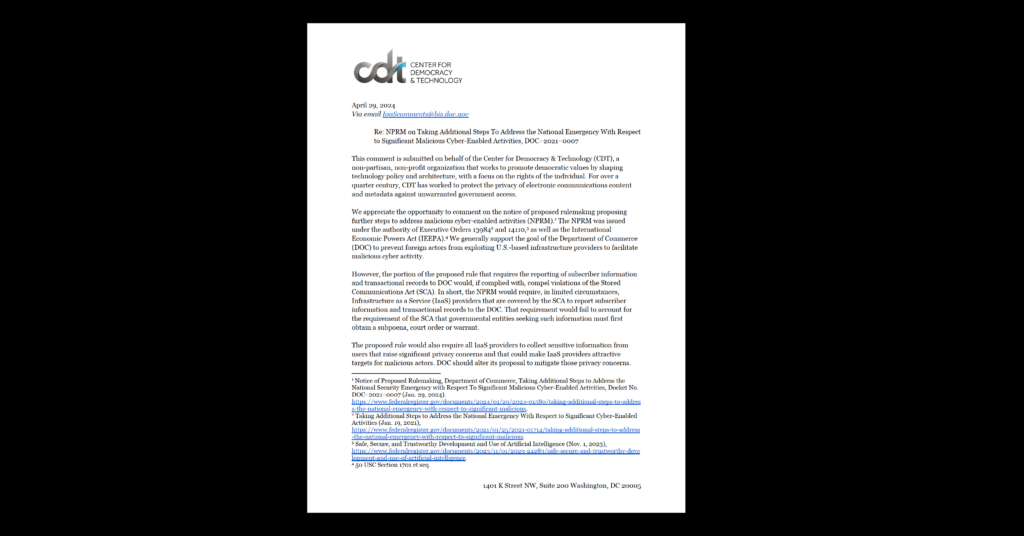A Recap of Months of CDT Advocacy on CISPA
Since CISPA was introduced, CDT has consistently said the bill has three critical civil liberties problems, and we have worked with Members of Congress, Internet users, advocacy groups, and industry to address them. The first is that CISPA permits unfettered sharing of private communication with the government; second, it permits that sharing to go to any agency including the super-secret NSA; and third, it permits the government to use this information for purposes wholly unrelated to cybersecurity. On these grounds we oppose CISPA.
When few others were engaged, CDT rang the bell on CISPA through a myriad of analyses, blog posts, and articles. We sought to alert the Internet community and spark press attention. We were, and continue to be, involved in discussions with many organizations in the Internet community about the bill. We supported alternative legislation—the PRECISE Act—that addressed many of our concerns.
Nevertheless, CISPA garnered over 100 co-sponsors and was introduced with strong industry support. Just a few weeks ago, the opportunity to defeat the bill or make any progress on the critical privacy issues looked bleak. Then the Internet community spoke up, and Congress began to pay attention.
Even before the bill was introduced, CDT expressed concerns about CISPA to the House Intel Committee. We renewed those discussions when it became clear the bill was heading to the House floor. Through these discussions, good progress was made in narrowing the definition of the information that could be shared with the government, and some progress was made on limiting the government’s use of information for non-cybersecurity purposes, particularly with respect to law enforcement. Yet while some improvements were made, we could not come to an agreement with the Committee over CDT’s core privacy concerns: the flow of information to the NSA and the use of this information for intelligence purposes.
Given our progress with the Committee, and with the understanding that the full House would consider amendments on these core issues, we agreed to focus our advocacy on the amendments rather than opposing the process moving forward. When the House Rules Committee decided not to make these key amendments in order, we reaffirmed our strong opposition.
We believe that debating and voting on these amendments on the House floor would have been the most important step in building awareness of the danger presented by involving NSA, a super-secret military agency, in civilian networks, and allowing cyber threat information to be used for national security purposes. It would have forced each member of the House to vote on the record on these issues and be held accountable. It would have informed the debate over cybersecurity information sharing as it moved to the Senate.
We are deeply disappointed that the amendments were not made in order. We worked for the best substance and process we could. Progress was made, but not enough. We strongly urge members to vote against the bill.


